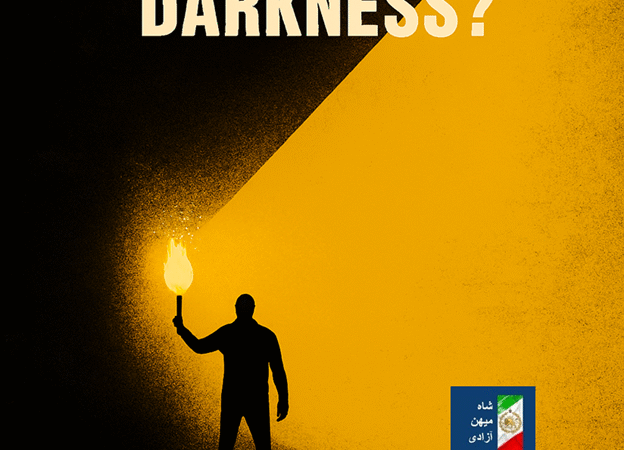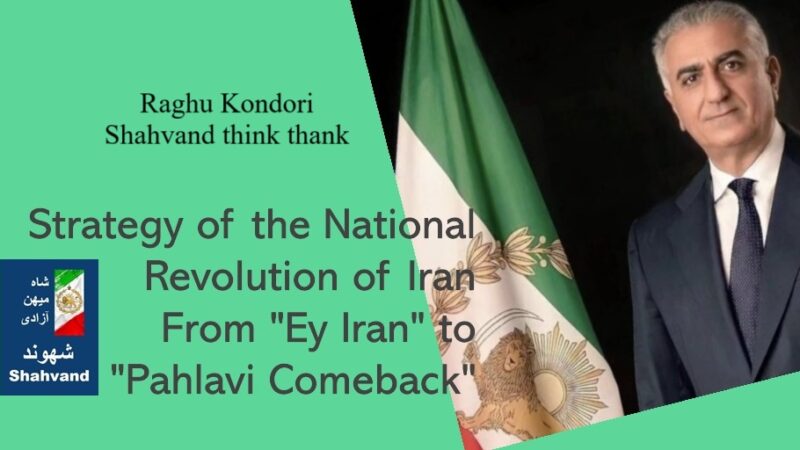Killing Five Birds with One Stone

A Strategic Blueprint for Realigning the New World Order
By Raghu Kondori
Director, Shahvand Think Tank
I. Introduction
We are living in a pivotal era, where U.S. global strategy, shifting alliances, and regional power struggles converge on a single, catalytic point: the future of Iran. The right strategic move could achieve what once seemed impossible—“killing five birds with one stone.” What are these five birds?
1. Separate Russia from China—to bring Russia to a deal with the U.S. and weaken China’s global ambitions.
2. Secure Israel’s safety—in a region fraught with existential threats.
3. Establish lasting peace in the Middle East—beyond fragile accords.
4. Overcome Europe’s double game—blocking Russia while quietly engaging with China, Iran, and the Middle East.
5. Stop Iran’s nuclear ambitions and terrorist threats.
II. America First Rebrands Globalism
For decades, globalism was shaped by the left, emphasizing economic and political integration. But this is not the end of globalism—it is an evolution. Globalism isn’t ending—it’s evolving. Under Trump’s “America First” vision, globalism is rebranded to prioritize U.S. power and conservative values. The strategy is bold: restructure the world order so the U.S. and its chosen allies lead, rather than merely participate.
A striking example is the U.S. proposal to acquire Greenland, aimed at securing rare earths and Arctic leverage. This reflects a realignment of strategic geography—positioning America to dominate the northern sea routes and counter Russia and China.
Are we witnessing a shift from leftist globalism to a new era of “right globalism”?
III. Separating Russia from China
Russia and China have recently deepened economic and strategic cooperation to counter U.S. dominance, challenge the dollar, and promote alternative global systems. The U.S. goal is to drive a wedge between them—offering Russia incentives to return to the West while cornering China into strategic isolation.
IV. Two Civilizations, Two Fates: Russia vs. China
The Kissinger doctrine succeeded on Russia because the USSR, despite its communist appearance, was built on Western ideals—industrial modernization, Enlightenment rationalism, and Orthodox tradition. Stalin’s Soviet Union pursued nuclear parity, heavy industry, and the space race, but collapsed from economic exhaustion and civic decay.
China, however, never mirrored the West. It remained deeply Confucian—patient, pragmatic, and strategic. Even under Communism, it avoided overextension. Instead, it built strong internal foundations: small and medium industries, export capacity, and tech-driven growth. China’s game is Sun Tzu’s: win without fighting, strike only when necessary.
This difference explains why the Soviet model failed and why China endured—but also reveals China’s vulnerabilities.
V. China’s Strategic Weaknesses
China is overdependent on cheap oil and resources from Iran and Africa. Its “Silk Road” Initiative is financially risky and lacks the military capacity to protect its assets. The Ant Group IPO shutdown revealed internal fear of modern private finance threatening state control. Many Western investors are losing trust.
Daily military drills around Taiwan are costly signals. A real invasion would isolate China, trigger tariffs and economic war, and accelerate foreign industry relocation to Vietnam, India, and Mexico.
If Iran’s regime falls, China loses a major energy partner, regional influence, and a strategic lever against the U.S.
VI. If the Red Dragon Cracks: Global Repercussions
China’s potential collapse would reshape the geopolitical map. Taiwan’s independence would gain global recognition. Hong Kong’s autonomy movement could reignite. Tibet’s self-determination efforts might find international support. Such shifts could unravel China’s territorial claims and shake its internal legitimacy.
VII. The Linchpin: Regime Change in Iran
No real Middle East stability or new global world realignment is possible without addressing the Islamic Republic of Iran—a regime sponsoring terror and destabilization since 1979. Regime change, restoring the Pahlavi monarchy, would shift the regional balance:
– Israel gains peace and security.
– ISIS and proxies lose support.
– Russia loses leverage.
– China loses cheap oil and regional influence.
– Europe and UK lose their Iran bargaining chip.
In one stroke, the regional and global order begins to transform.
VIII. Building the Right Alliance
This vision requires a new alliance of right-leaning states: Argentina under Milei, Italy under Meloni, Hungary under Orbán, India under Modi, Israel as a key partner, and a restored Iran. This global bloc of nationalist, economically focused allies would reshape globalism around strength, sovereignty, and strategic cooperation.
IX. The Sirius Accord: Beyond the Abraham Accords
The Abraham Accords normalized ties between Israel and Arab nations but lacked depth. They failed to dismantle Islamist extremism or forge military alliances. The Sirius Accord aims further:
– Full normalization including a democratic Iran.
– Regional defense pacts.
– Economic integration and tech collaboration.
– Secular governance and tolerance.
– Joint action against terrorism and BDS.
X. Maximum Pressure, Maximum Support
The West must apply maximum pressure on the Islamic Republic and offer maximum support to the opposition—led by HRH Reza Pahlavi. This approach accelerates regime change and builds the foundation for a post-Islamic, secular Iran aligned with peace.
XI. Conclusion: A New World Order Within Reach
This is how we kill five birds with one stone:
– Split Russia from China.
– Secure Israel, transform the Middle East.
– Weaken China’s position.
– Neutralize Europe’s duplicity.
– Regime change in Iran is the linchpin “ The Stone”.
The Sirius Accord is the vehicle. The result is a renewed conservative-led #RightGlobalism with U.S. leadership, peace, and strategic stability. The time for bold vision is now.

Raghu Kondori
Thinker, founder of Shahvand think tank, author, filmmaker, politics and spiritual. His work includes in-depth analyses of politics, strategy, psychology, literature, culture, philosophy and spirituality.

